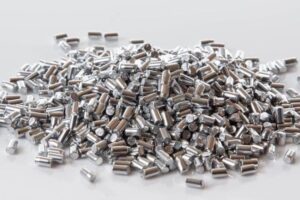
According to the Ministry of Tourism and Sports of Thailand, from January 1 to December 21, 2025, 31.756 million foreign tourists visited the country, which is 7.25% less than in the same period in 2024. The largest markets during this period were Malaysia (4.38 million), China (4.36 million), India (2.40 million), and Russia (1.80 million).
Based on the results of the whole of 2025, the agency estimates the inbound flow at almost 32.97 million tourists (-7.23% y/y) and the revenue from their spending at 1.536 trillion baht (-4.71%). The top 10 markets by number of arrivals included Malaysia (4,520,856), China (4,473,992), India (2,487,319), Russia (1,898,837), South Korea (1,555,227), Japan (1,091,227), the United Kingdom (1,083,162), the United States (1,081,929), Taiwan (987,633), and Singapore (967,341).
Ukraine did not make it into the top ten countries in terms of tourist flow to Thailand in 2025. This means that the flow from Ukraine was lower than that of the country in 10th place (Singapore – about 967,000 tourists).
In the resort real estate market, this usually leads to tougher competition for buyers and developers focusing on audiences from countries that generate the main tourist flow (primarily Malaysia, China, India, Russia, and other top 10 markets).

In December 2025, Tunisia imported 6.2 thousand tons of Ukrainian bran and feed flour (HS code 2302) worth $1.1 million, which is almost 26% of the total volume of supplies from Ukraine during this period in physical terms, according to the information and analytical agency “ APK-Inform ” reported.
“These are the first deliveries of this type of Ukrainian product to Tunisia since the beginning of both the marketing and calendar year. At the same time, in 2024, this country did not purchase the specified Ukrainian products,” analysts said.
According to their information, since the beginning of the 2025/26 marketing year (July 1 – December 23), Ukraine has supplied 168.6 thousand tons of bran and feed meal to foreign markets for a total of $26.8 million. The main buyers were Turkey (111.2 thousand tons), Syria (15.6 thousand tons), and Romania (9.7 thousand tons).
“In 2025/26 MY, flour production in Ukraine may reach 1.9 million tons (-8.4% compared to 2024/25 MY), which will result in wheat bran production of 530 thousand tons. At the current export rates, this will allow the export potential of this segment to reach 320-330 thousand tons, which is 8-11% less than in the previous marketing year,” APK-Inform noted.

The municipal enterprise (ME) Kyivpastrans plans to purchase 16 new low-floor city trolleybuses with a length of over 11.9 m by December 1, 2026, for an estimated amount of UAH 306.344 million, according to the website of the Kyiv City State Administration.
“The renewal of the rolling stock is necessary to improve transport safety, ensure the stable operation of public transport, and reduce travel intervals on routes,” the statement said.
The required total passenger capacity is about 100 people, including 34 seats. The interior must provide space for passengers with reduced mobility, wheelchairs, strollers, and ramps.
Trolleybuses must be equipped with heating and air conditioning systems, tinted windows, LED lighting, external and internal information displays, and a system that blocks movement when the doors are open.
In addition, the vehicles must be equipped with a loudspeaker system for announcing the route and stops, as well as space for installing GPS trackers for traffic control and equipment for automated fare payment.
As reported, in October 2025, Kyivpastrans canceled the purchase of 40 low-floor trolleybuses for an expected amount of more than UAH 1.008 billion due to the inability to make changes to the technical requirements of the tender documentation, which would lead to a change in the estimated purchase price.
Earlier, Kyiv canceled the purchase of 20 buses for almost UAH 83 million by the end of 2025, announced at the end of August 2025, for the same reason.
In addition, as part of a EUR 50 million loan agreement with the European Investment Bank, Kyiv announced in the summer of 2024 the purchase of 12-meter and 18-meter trolleybuses without specifying the number of each length, but the final outcome of this tender is still unknown.

Aluminum prices rose to their highest level since April 2022 during trading on Tuesday.
Aluminum on the LME rose 0.8% to $3,111 per ton. Prices for other metals also rose: zinc added 1.5% and reached $3,241.5 per ton.
Aluminum is widely used as a structural material. The main advantages of aluminum are its lightness, malleability, corrosion resistance, high thermal conductivity, and the non-toxicity of its compounds. In particular, these properties have made aluminum extremely popular in the manufacture of cookware, aluminum foil in the food industry, and for packaging. The first three properties have made aluminum the main raw material in the aviation and aerospace industries (recently, it has been replaced by composite materials, primarily carbon fiber). After construction and the production of packaging—aluminum cans and foil—the largest consumer of metal is the energy industry.

The price of nickel rose to a 15-month high amid reports that Indonesia is tightening control over metal production volumes.
The price of nickel for delivery in three months rose 6.1% during trading on Tuesday to $18,045 per ton, the highest since October 7, 2024.
“Indonesia’s tightening of production controls through a slower quota approval process and planned quota reductions in 2026 is a fairly effective factor in price growth,” said ING analyst Eva Manti.
She notes, however, that the increase in nickel prices is unlikely to be sustainable, as the market is still expected to see a significant supply surplus in 2026.
The day before, Indonesian publication Bisnis.com reported that the country’s authorities had allowed mining companies to temporarily focus on previously approved metal production quotas for 2026 while new quotas are under consideration.
Nickel is used in the production of stainless steel and for nickel plating. Nickel is also used in the manufacture of batteries, in powder metallurgy, and in chemical reagents.